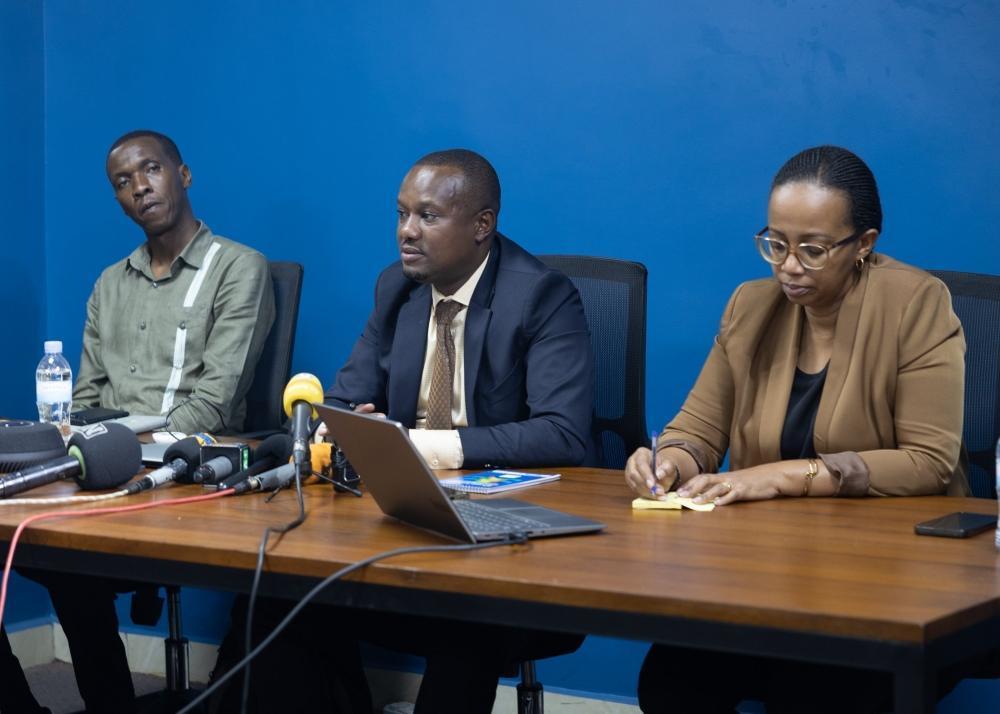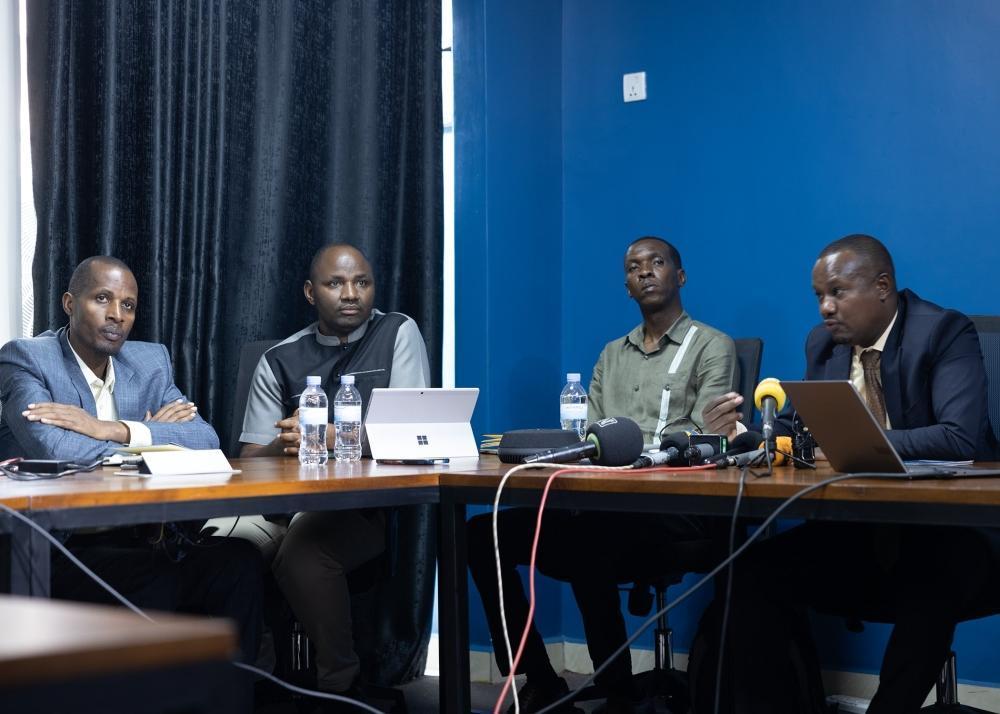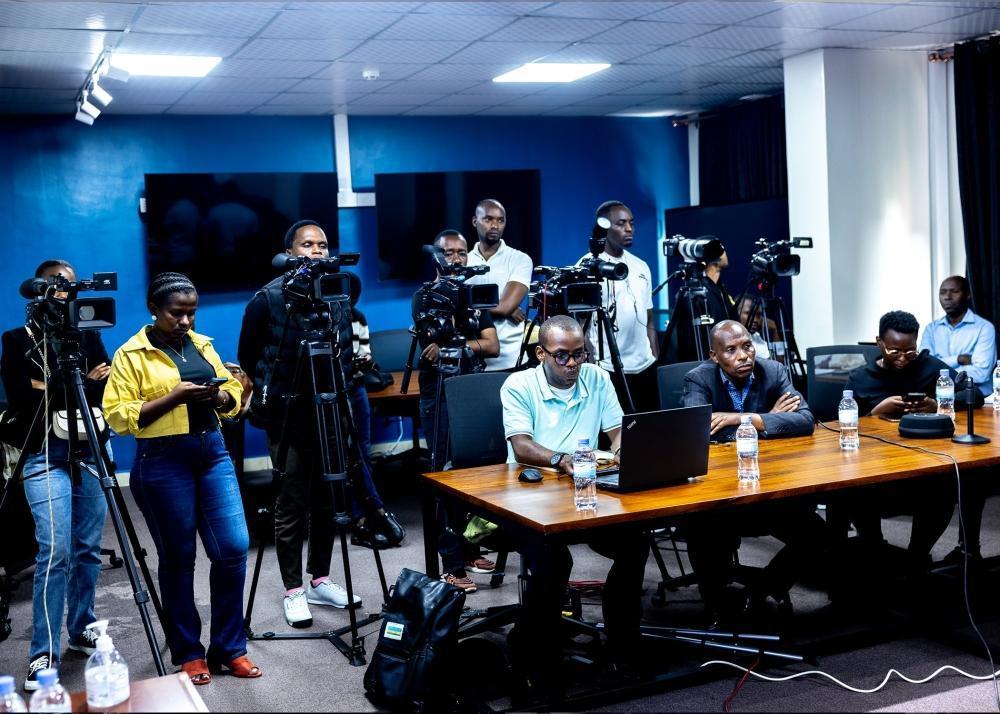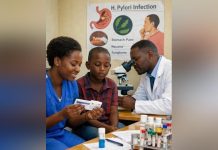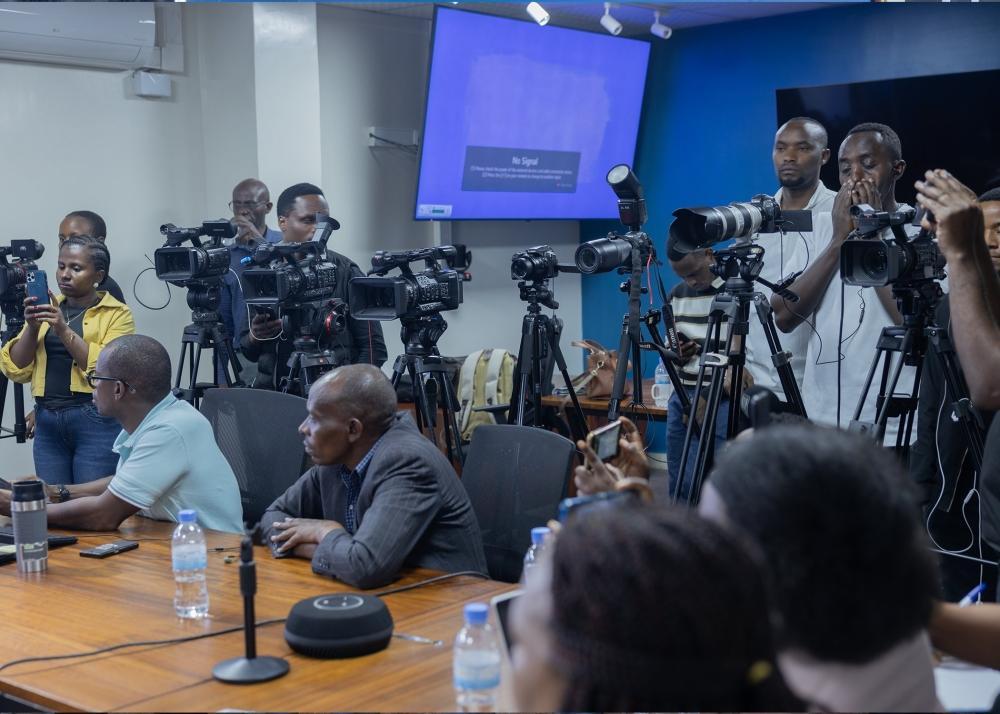
Africa-Press – Rwanda. Ahead of the 31st commemoration of the 1994 Genocide against the Tutsi, journalists gathered at Rwanda Biomedical Centre (RBC) headquarters in Kigali, on April 4, for a briefing on trauma and mental health distress management during the commemorative period.
Dr. Darius Gishoma, the Division Manager of Mental Health at RBC, urged journalists to approach their reporting on the 1994 Genocide against the Tutsi with knowledge and sensitivity. He emphasized the need of understanding the emotional impact of the genocide and urged journalists to offer practical help to survivors dealing with mental health issues during the commemoration.
“We are requesting you to assist people with trauma during this period. When you see someone uncomfortable, filled with fear, help them find a comfortable space, be next to them, and offer the emotional support they need. Let the public know where they can seek help and provide the helplines available,” Dr. Gishoma said, noting that journalists should avoid publishing stories that might hinder a genocide survivor’s healing process and be mindful of the emotional impact their words may have.
“Write stories with purpose, focusing on what can make people stronger, rather than what could incite fear and pain. Also, prepare people, before Kwibuka, so that they begin the period strong.”
Dr. Gishoma shared data from previous years, showing the number of trauma cases reported during commemoration events. In 2019, he indicated, up to 3,268 cases were recorded, while in 2020, the number dropped to 696 due to the Covid-19 pandemic. The numbers increased in subsequent years: 964 in 2021, 1,923 in 2022, 2,184 in 2023, and 2,016 in 2024.
He noted that the decrease in 2020 was largely due to the suspension of public commemorations, as people stayed home. However, trauma victims were still supported and transported to health centers for requisite medical treatment.
“These cases are primarily from genocide survivors, but we also receive trauma cases from people under 30 who were affected by what happened to their parents. Women are more affected than men,” Dr. Gishoma explained.
He added that 1,906 trauma cases were followed up in 2024, with 110 still missing. He observed that in April, there was an increase in people seeking treatment for Post-Traumatic Stress Disorder (PTSD), particularly those who were directly exposed to the genocide.
“Trauma and other mental health conditions persist as consequences of the genocide, making prevention and building resilience through community intervention crucial,” he said.
Dr. Gishoma highlighted that first aid and psychosocial support are available at commemoration sites, provided by Community Health Workers (CHWs), Rwanda Red Cross, and civil society organizations like Ibuka and AVEGA. Additionally, healthcare is available at all levels of the health system, 24/7.
He emphasized the need for follow-up care for individuals who experience emotional distress or trauma during the commemoration period. He provided several helpline numbers for people in need of psychological support: Ministry of Health (114), Emergency Medical Services (912), Rwanda National Police (112), Ibuka (1024/5476), AVEGA Agahozo (7494), Survivors Fund Rwanda (2060), and Rwanda Red Cross (2100).
Aimee Josiane Umulisa, a clinical psychologist at Ibuka, spoke about the organization’s efforts to support genocide survivors.
“We partner with RBC to visit survivors in various districts, providing them with food, community health insurance, and other forms of assistance. During this period, some survivors may feel isolated, and we urge everyone to be there for them, offering the right support. Through partnerships with the Ministry of National Unity and Civic Engagement, RBC, and Ibuka, we trained over 100 people in districts like Bugesera, Kicukiro, and Ruhango, to assist survivors, and more than 200 students have been trained to listen and provide support,” she said.
Claire Nancy Misago, the Director of the Community Mental Health Rehabilitation Unit at RBC, explained that survivors often relive painful memories of the genocide, which can cause feelings of fear, anxiety, and emotional disconnect.
Some may even feel compelled to run away from the commemorative activities, whether they are watching on TV or participating in events in various sites.
“Many people experience PTSD, depression, anxiety, and panic disorders during this time. So, it is vital to offer emotional support if someone exhibits these symptoms. Just being there for them can make a difference.”
For More News And Analysis About Rwanda Follow Africa-Press

